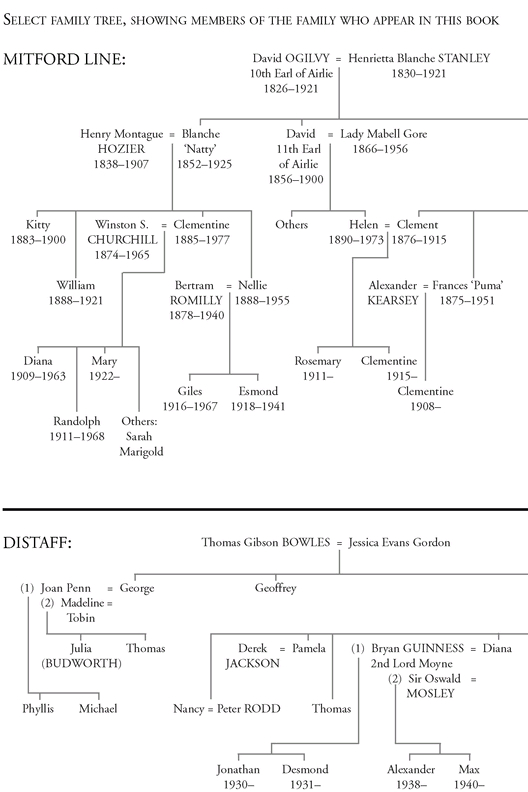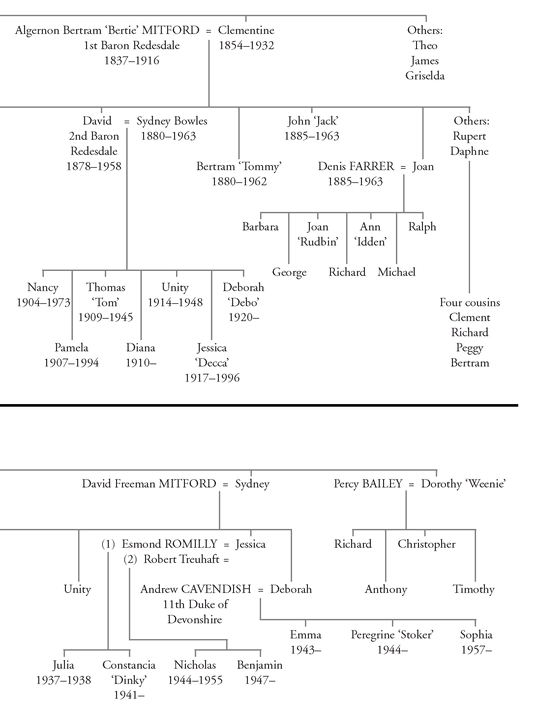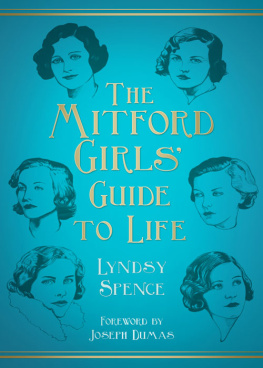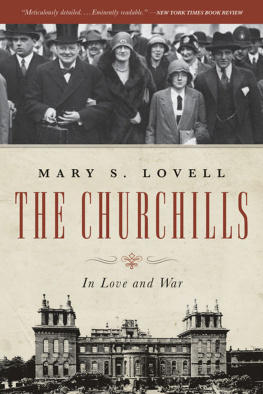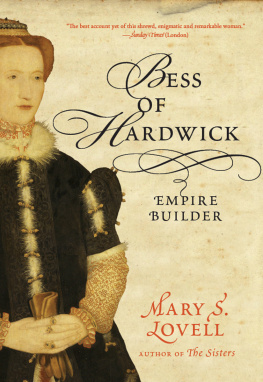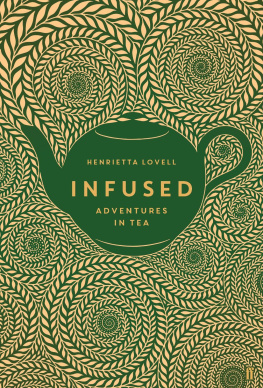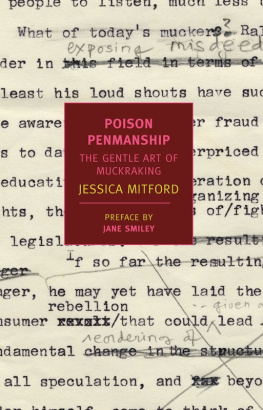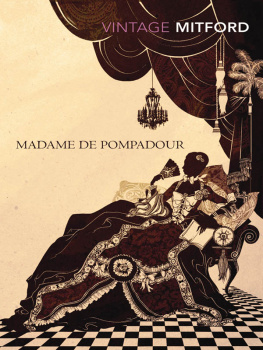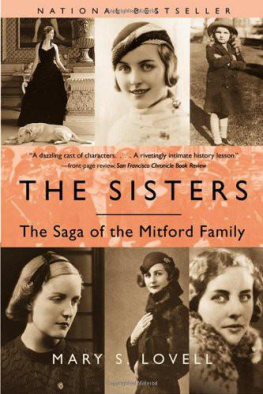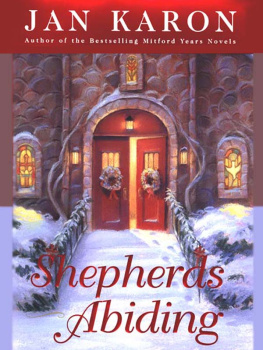Table of Contents
Prior to The Mitford Girls, Mary S. Lovell has written five major biographies, including the international bestseller Straight on till Morning: The Biography of Beryl Markham. She lives in Gloucestershire.
For further information on books by Mary S. Lovell, please visit her website at www.marylovell.com
Praise for The Mitford Girls
This is an excellent book - calm, dispassionate and respectful of its subjects Daily Telegraph
By drawing on new sources, Lovell presents a fresh version of the Mitford story... Lovells book proves that there was something extraordinary about those six well-bred girls from Gloucestershire Independent
Lovells never-a-dull-moment biography animates usually underrated players such as the girls mother, Lady Redesdale, who once lectured Hitler on the importance of wholemeal bread, and Pam, the second eldest and most rural Mitford Girl, who had a sky-blue Aga to match her eyes Daily Mail
Biographies by Mary S. Lovell
Straight on till Morning: The Biography of Beryl Markham
The Sound of Wings: The Biography of Amelia Earhart
Cast No Shadow:
The Spy Who Changed the Course of World War II
A Scandalous Life: The Biography of Jane Digby
The Splendid Outcast: The African Short Stories of Beryl Markham
A Rage to Live: A Biography of Richard and Isabel Burton
The Mitford Girls
MARY S LOVELL
Hachette Digital
www.littlebrown.co.uk
This book is for
Graeme, Shari, Robyn and Imogen
With all the love in the world
Family Tree
INTRODUCTION
During the course of researching and writing this book I have often been asked the question that people ask endlessly of a biographer: Who are you writing about at the moment? In answering, The Mitford family, I have noticed that recognition begins at about the age of fifty. In other words, if the questioner is over the age of fifty I generally receive a sage nod, below that the polite enquiry, And who are they?
They were six beautiful and able sisters, Nancy, Pam, Diana, Unity, Jessica (Decca), and Deborah (Debo). Nancy wrote a series of sparkling bestselling novels, the best known of which are The Pursuit of Love and Love in a Cold Climate, and for which she drew largely upon her family for characters. Decca launched her writing career when she wrote a bestselling memoir of her early life called Hons and Rebels. These three books spawned a genre, which is called by the family the Mitford Industry. Later, both Diana and Debo also produced bestselling books. Yet the Mitford sisters are not known merely for producing literature: they also led extraordinarily full lives, quite independent of each other.
The bones of the sisters childhood with their private languages, family jokes and endless nicknames are well known to people of my generation (over fifty), so I have tried to make the story intelligible to readers new to it without dwelling overmuch on material about the girls childhood that has been told and retold, except when necessary for continuity or when it added measurably to the narrative. What I set out to do was explore the relationships between the sisters, drawing on personal interviews, family papers and correspondence not previously seen outside the family, as well as extensive published sources.
When I began researching, I suppose I had in mind - because of the above books - a frothy biography of life in Society between the wars. Of course I knew of the polarized ideologies of Diana, Unity and Decca but I had not realized how quickly or how completely the mirth of the sisters childhood disintegrated into conflict, unexpected private passions, and tragedies.
The girls parents, Lord and Lady Redesdale - David Freeman Mitford and his wife Sydney - are perhaps better known to posterity (thanks again to the above-mentioned books) as Farve and Muv. They were honest, well-meaning, salt-of-the-earth, admittedly slightly eccentric, socially retiring minor aristocrats; thoroughly nice people who, because of their extraordinary daughters, were propelled unwillingly, blinking and unprepared, into an international spotlight. Yet if there is a heroine in this book it is surely Sydney. Her loyalty to, degree of concern for and tactful support of all her daughters were unflagging, even when pre-Second World War polemics caused the disintegration of her formerly happy marriage. This strength may come as a surprise to those who recall the Muv of her daughters writings as a slightly batty, absent-minded and vague personality almost disassociated from the reality of her childrens lives.
Although politics plays a major part in the story of the sisters, this is not a political book, so anyone expecting a stand against Unity or Diana and the far right, or Decca and the far left, must look elsewhere. I accept each of these protagonists as she was, and, in Dianas case, as she still is. This book seeks to explore the richness of the personalities, not to judge them. The reader is as capable as I am of forming his or her own opinions based on the evidence, and an individual social ideology. Rather, I hope to illustrate the complex loyalties and love, disloyalties and even hate, and above all the laughter that ran through this familys relationships - they could always find humour even in their own misfortunes. Lord Longford, who has known the family for seventy years, told me, You have to look at that family as fun. They were enormous fun.
Two of the sisters are triumphantly alive as I write this book. Diana, at ninety, is still chic and articulate; Debo, serene and utterly charming, celebrated her eightieth birthday in March 2000, yet apparently possesses the energy levels of someone half her age. She is a busy CEO directing a large, successful and constantly expanding organization that employs hundreds of people.
The mere fact that this book deals with nine personalities, three of whom have already been the subject of independent biographies, means that for reasons of space much fascinating detail has had to be pruned. For those interested in delving further a bibliography is included. I have had to resist the temptation to explore a multiplicity of players on the twentieth-century world stage with whom various members of the Mitford family came into contact: from Winston Churchill, Anthony Eden, Adolf Hitler, Paul Joseph Goebbels, Benito Mussolini, Hermann Goering, and General de Gaulle, to the Duke and Duchess of Windsor, Max Beaverbrook, John and Bobby Kennedy, and Aly Khan; from George Bernard Shaw, Lytton Strachey, Evelyn Waugh, Diana Cooper, Emerald Cunard, John Betjeman and Cecil Beaton, to Katherine Graham, Maya Angelou, Salman Rushdie and Jon Snow. A complete list of the celebrities, heroes and anti-heroes who moved in and out of the lives of the sisters would take pages. Suffice it to say that it is simply not possible to tell the story of the relationships between the members of the family and also indulge the luxury of exploring these fascinating side issues. For the same reason many less well-known personalities who were close to the sisters have had to slip through these pages as mere shadows: their first cousins, for example, who were an important part of their growing-up years, dear family friends, such as Mrs Violet Hammersley, who was like a character from a Victorian novel with her furious pessimism, love of gossip and great affection for the family, and Lord Berners, talented, generous, and eccentric in the grand manner. Then there was a literal host of Deccas friends in California, among many others.

